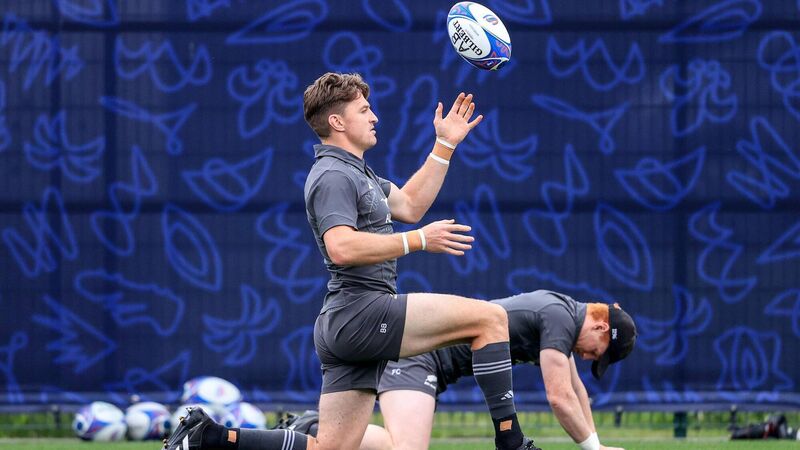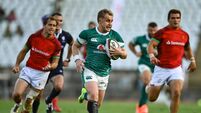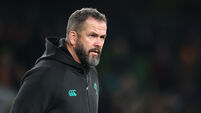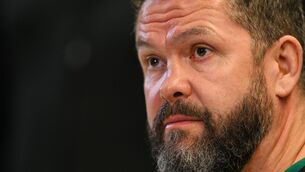Ronan O'Gara's verdict: For New Zealand, the waves will crash a lot higher and faster now

IN CONTROL: All Blacks full-back Beauden Barrett stretching before New Zealand training on Thursday. Pic: Dan Sheridan, Inpho.
WERE I to suggest around here that France and South Africa may not be the biggest show in town this weekend, the natives would bypass the interrogation and go direct to the folk in the white coats.
France is about to move to a whole new level of frenzy Sunday night for the Springbok quarter-final at the Stade de France, the personification of a knife-edge tie. How do you call it? That depends on what corner of the La Rochelle dressing room you perch yourself in. Raymond Rhule and Dillan Leyds are convinced South Africa’s line speed, daunting size, chop tackles and pressure game will suffocate French flair.
















